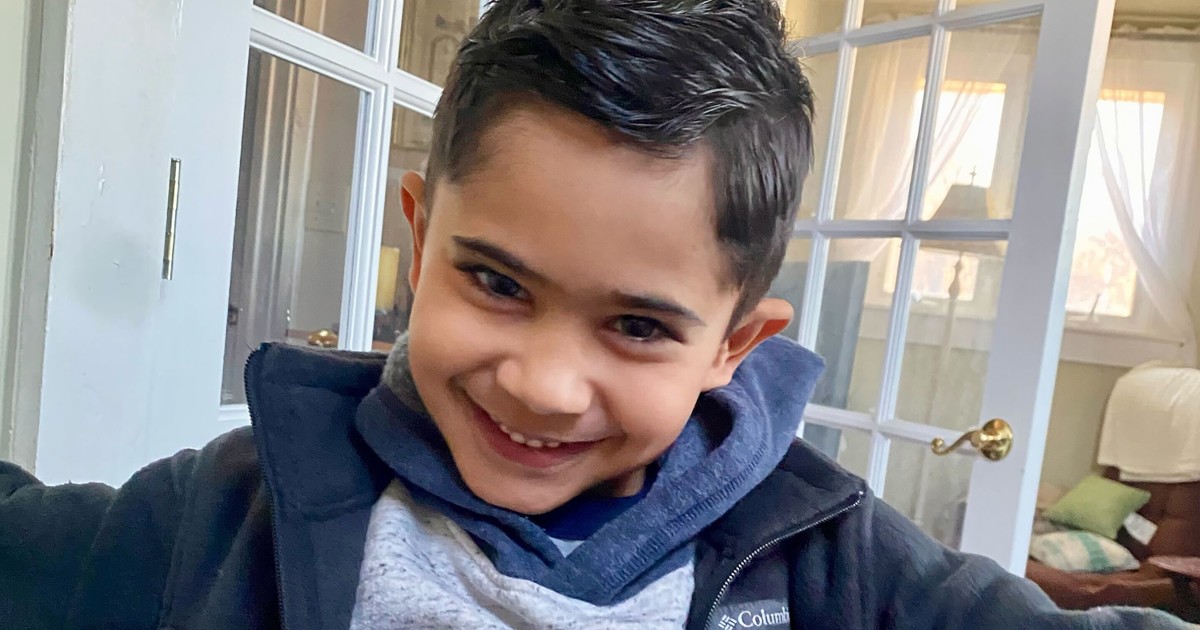For what seemed like an eternity, Megan Drye, her son and her parents clung to the roof of their family home as the rains driven by Hurricane Helene pelted Asheville and the floodwaters around them rose higher and higher.
Then, suddenly, the house collapsed, tossing them all into the muddy, unrelenting water.
Drye was the only one who eventually made it out alive.
The last thing she heard her son scream was, “Jesus, please save me!”
Days later, the heartbroken mom was mourning her 7-year-old son Micah, her 73-year-old parents, Nora and Michael, and she was thanking God for saving her.
“There’s no way I should have survived without God and these prayers,” Drye, 39, said through tears in an interview Monday.
The city of Asheville, in the western mountains of North Carolina, was particularly battered by Helene, which made landfall in Florida on Sept. 26 as a Category 4 storm. The hurricane killed at least 240 people, most of them in North Carolina. At least 117 people were killed there — 72 of them in Buncombe County, where Asheville is located.
Drye texted photos of the rising water to her two older sisters before the roof gave way. One of them, Jessica Turner, who lives in Texas, posted the images on Facebook and asked people to pray for her family.
“They gave me strength,” Drye said of those prayers. “And I do believe that my parents and my son were also there with me and helping me in lifting me up.”
Drye said the family spent three to four hours on the roof before they plunged into the floodwaters. During that time, they watched as buildings fell apart around them, 18-wheelers floated by and a dumpster landed on their roof.
Drye was concerned they might get electrocuted by the many downed power lines. After the home collapsed, she lost sight of her son and mom. She was thrust into a tree, where she became stuck.
“I see my mom floating by and she’s screaming: ‘Micah! Micah!’” Drye said. “They had lost each other, too. I just see her floating past me, screaming. I can’t see my dad anymore. I can’t see anything.”
The entire time, she said, she leaned on her faith.
“Even in the midst of me drowning, I was still praying, praying, praying,” she said.
As she struggled to stay above the water, Drye said, she was smacked by debris coming from every direction. She eventually grabbed onto another more stable tree.
“I sat there for a second and a voice inside of me, which I know was God, said: ‘You have to let go. You have to let go. You have to get to a point where somebody else can see you or you just have to let go,’” Drye said.
She said she couldn’t see another spot where she would be able to pause among the raging waters and catch her breath.
“There was nothing ahead,” she said. “There were no more trees. There were no more landings.”
But Drye let go. “I listened to that voice,” she said. “I listened to God, and I let go.”
She kicked off her shoes and removed from her back a knapsack —filled with important documents and her laptop — that was weighing her down. And Drye stopped fighting the water, which, she said, the voice also advised her to do.

Drye was then wedged between two storage trailers for a couple of hours. She remembered seeing police nearby, who used a loudspeaker to communicate with her. They told her to hang on, and that they were working to reach her — which they eventually did, but not before an 18-wheeler struck the two trailers, plunging her back into the water. She rose again and by about 5 p.m., Drye said, a national rescue team used a ladder to lift her to safety.
“They later on said that this was their most difficult rescue,” she recalled.
She was taken to Mission Hospital in Asheville, which Drye said didn’t have running water or even a hospital gown to offer her. (She said she had to relieve herself in a portable toilet.) Still, she said, everyone she encountered there, even nurses and doctors who weren’t personally caring for her, were extremely kind.
Drye was all alone at that point. Her sisters, Heather Kephart, 43, who lives in Minnesota, and Turner, 45, whose Facebook post went viral, were traveling to be with her.
A nurse offered Drye fresh clothes. A doctor lent Drye her cellphone so she could call her sister to let her know where she was. Other medical staff offered her a place to stay when she was released from the hospital. Drye was diagnosed with hypothermia, sustained a fractured ankle and spent a full night in the hospital. She has bruises up and down her body from the debris that struck her while she was in the floodwater.

And though she is still hurting and deep in grief, she said she harbors no resentment toward anyone.
“I was never more proud of my son for not screaming my name, but for screaming ‘Jesus,’” she said.
When Micah was found, he didn’t have a mark on his body, Drye said, adding that she believed he and her parents are now “at perfect peace.”


